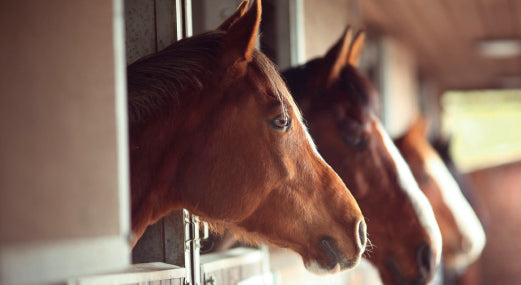Behaviour
Can horses smell fear and happiness?
“Horses can smell fear you know”. A phrase many equestrians will have heard, but how true is it? A recent study (1) suggests there might be some truth in this statement and the results may have some interesting conseq...
Read More
Influence of rider bodyweight on equine gait and behaviour
It is widely publicised that a growing number of the human adult population are overweight or clinically obese. Although it is recognised that inappropriate rider size has welfare implications for horses1, there is a ...
Read More
Let’s Talk About Sex!
Preconceived versus Actual Behavioural Differences between Geldings and Mares
Horse trainers, owners and riders may have preconceived ideas about horse behaviour, temperament and rideability, based solely on the sex o...
Read More
Do horses benefit from human demonstration on how to open a box to find food?
The behaviour of animals can be altered in various ways. Horses interact on an everyday basis with humans, and some studies suggest that horses can learn new behaviour from observing humans. A group of researchers fro...
Read More
Why do horses "Snort"? An Itchy nose or an indication of stress?
A scientific study just published from a group of researchers at the University of Normandie in France asked the question "Could snorts inform us on how horses perceive riding?”
Many owners are aware of the research i...
Read More
The effect of high-starch diets on hindgut (faecal) bacteria and behaviour in horses
Research into diet and behaviour and the effects on the digestive system has increased significantly in the past decade, with many researchers looking at the effects of different diets on bacteria in faeces. Whilst id...
Read More
Australian Study Looks At How Fast Horses Eat And Finds That Clydesdales Might Be Greedy!
Horses that are quick eaters, especially when eating cereal based feeds, are considered to be at higher risk of behavioural problems and digestive problems, especially choke. Whilst choke by itself is not life-threate...
Read More
A Preliminary Investigation Into the Effect of ProKalm on Gait and Dressage Score: A double-Blind, Placebo-Controlled, Cross-Over Study
A relaxed and co-operative horse is expected to perform better in dressage. This study tested the effect of ProKalm (Science Supplements™, U.K.) or a placebo on gait and dressage score. Horses and ponies (n=25) were r...
Read More









